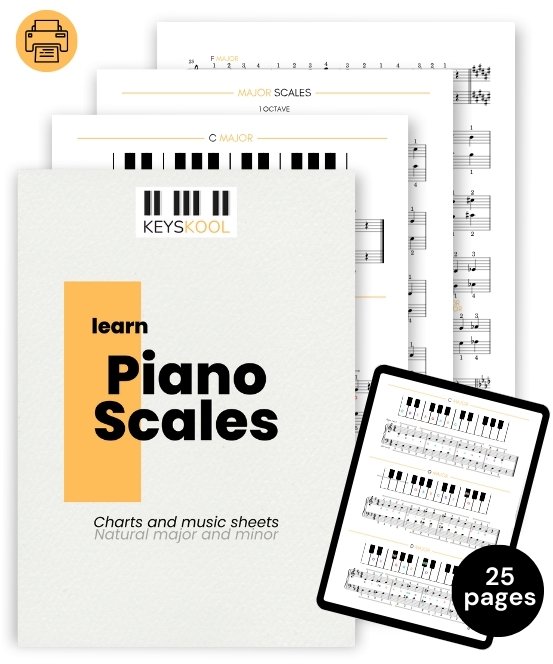As a budding pianist, you might be asking yourself, “how often should you tune a piano?” It’s a great question and one that’s crucial to your journey as a musician. Properly tuning your piano is essential for it to sound its best and for you to develop your ear for music. Don’t worry, we’re here to guide you through the process and importance of piano tuning. Let’s dive in! 🎹
What is Piano Tuning?
Piano tuning might sound a bit technical and intimidating as a beginner, but don’t worry, it’s simpler than it seems. Piano tuning is the process of adjusting the strings of the piano to match the correct pitch. Each string on your piano matches a specific note, and over time, these can lose their tune and sound off. That’s where tuning comes in. 🎼
Not only does it ensure your piano sounds its best, but it also helps train your ear to recognize and appreciate the nuances of different pitches and tones.
So, how often should you tune a piano?
Well, it can depend on a variety of factors, such as how often you play, the piano’s age, and the climate of your area.
As a general rule of thumb, most manufacturers recommend tuning your piano at least twice a year.
Remember – a well-tuned piano is a happy piano and the key to a beautiful melody.

Printable Practice Piano Scales PDF
Practicing piano scales is among the best exercices to get fingers strengh and agility. With our piano scales guide designed specificaly for beginners, you will master the main and basic piano scales quickly, easily and with a touch of fun.

The Cost of Piano Tuning
On average, piano tuning can cost anywhere between $100 and $200 depending on your location and the complexity of the tuning. This might seem like a considerable investment, but remember, tuning your piano is crucial for its performance and longevity. Think of it as an investment in your musical growth and the health of your piano.
Factors that may influence the cost.
Several factors can influence the cost of piano tuning.
- One of these factors is the state of your piano. If your piano hasn’t been tuned for a long time, it might require a ‘pitch raise’, which is a more complex and time-consuming process, hence, it might cost you a bit more.
- The type of your piano can also affect the tuning cost. For instance, grand pianos often cost more to tune than upright ones due to their structure and the expertise required to tune them.
- Your geographical location can also influence the cost of tuning. If you live in a city with a high cost of living, the tuning services might be more expensive than in a smaller town or rural area.
Read: Piano tuning is a skill that takes years to master. It involves adjusting the tension of the strings so they vibrate at the correct frequency. Source: Wikipedia
How long it typically takes to tune a piano.
Generally, tuning a piano can take anywhere from 1 to 3 hours. This can vary based on several factors, such as the condition of your piano and the last time it was tuned.
If your piano is relatively new or has been regularly tuned, the process might be on the shorter side. However, if it’s been a while since the last tuning, it could take a bit longer.
A piano has over 200 strings, and each one needs to be carefully adjusted to produce the correct sound. This is a meticulous process that requires the full attention and expertise of the piano tuner.
Can You Tune a Piano Yourself?
You might be tempted to try and tune your piano yourself to save time and money. While it’s feasible, it’s important to know that tuning a piano requires a specific set of skills and tools. Without the proper knowledge and experience, you could potentially damage your piano or not tune it correctly, which could affect the sound quality.
Pros and Cons of DIY Tuning
There are a few advantages to tuning your piano yourself. Primarily, you could save money on professional tuning services. Additionally, you could gain a deeper understanding and appreciation of your instrument.
However, there are also significant downsides to consider. The biggest risk is that without the proper skills, you could damage your piano, which could lead to costly repairs. Furthermore, you might not be able to achieve the same level of precision and quality as a professional tuner, which could impact your piano’s sound.
Ultimately, while tuning your piano yourself might seem like a good idea, it’s often best to leave it to the professionals. They have the knowledge, experience, and tools necessary to ensure your piano sounds its absolute best.

The Best Time of Year to Tune Your Piano
Optimal Times for Piano Tuning
In general, your piano should be tuned at least twice a year. However, the timing can be crucial. The best times to tune your piano are usually at the change of the major seasons – spring and autumn. Why? These periods typically represent the most significant shifts in indoor climate, and your piano is very sensitive to these changes.
Understanding Your Piano’s Sensitivity to Climate
Your piano is a delicate instrument, and its strings and soundboard are very sensitive to changes in temperature and humidity. When the humidity increases, the soundboard can swell, causing the pitch to sharpen. On the other hand, during drier months, the soundboard can contract, leading to a flat pitch.
By tuning your piano at the start of these significant climatic shifts, you’re helping it maintain the best possible sound throughout the year.
Read: The average piano should be tuned at least twice per year. This frequency is based on the natural settling and adjusting of a new or newly moved piano. Source: Yamaha
Does Indoor Climate Matter?
Absolutely! If you’re fortunate enough to have climate control in your home that maintains a consistent temperature and humidity level year-round, you might not need to adhere strictly to the spring and autumn schedule. However, it’s still a good idea to have your piano serviced twice a year.
What If You Miss the Ideal Times?
Don’t worry! If you miss the ideal times for tuning, it’s still better to tune your piano late than not at all. Remember, every piano and every home is unique, so it’s always best to discuss your specific situation with a professional piano tuner. They can provide the most accurate advice based on your environment and your piano’s specific needs.
Why Do Pianos Go Out of Tune?
Pianos are complex instruments, and they can go out of tune for various reasons.
- One of the most common is the natural tension loss in the piano strings. Over time, the strings on your piano can stretch and lose tension, causing the piano to lose its tune.
- Another factor is the environment. Pianos are sensitive to changes in temperature and humidity. When the weather changes, so can the size and shape of the piano’s soundboard, which can affect the tension of the strings and the tune of your piano.
- Lastly, playing your piano also contributes to it going out of tune. The impact of the hammers on the strings can cause them to change tension. The more you play, the more likely it is that your piano will need tuning.
How to Know If Your Piano is Out of Tune
The most obvious sign is that your piano just doesn’t sound ‘right.’ You might notice that certain notes sound off when you play them, particularly when played alongside other notes.
Check octaves 🎶
A great way to check this is by playing octaves. If your piano is in tune, an octave should sound perfect, with both notes blending together. If it’s out of tune, the octave might sound dissonant, and the notes might seem to ‘warble’ against each other.
Check chords 🎵
Another way to check is to play a chord. Try playing a C major triad (C, E, and G played together). If your piano is in tune, the chord should sound harmonious. If it’s out of tune, the chord might sound jarring and discordant.
Contact a profesionnal 😅
Remember, if you’re ever unsure, it’s always best to consult with a professional piano tuner. They’ll be able to accurately assess your piano and make the necessary adjustments.
So there you go, a brief overview of why pianos go out of tune and how to tell if yours might need a tune-up. Remember, regularly tuning your piano is an essential part of maintaining your instrument and ensuring it sounds its best. Happy playing!




